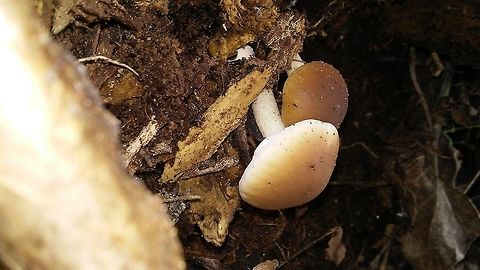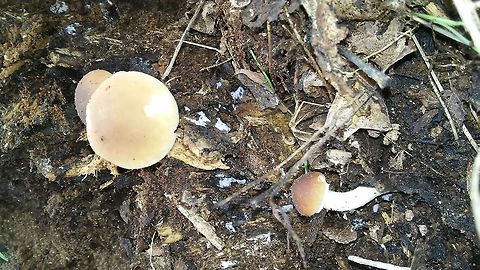
Appearance
It belongs to the white rot fungi and is a medium-sized agaric having a very open and convex cap, almost flat, with a diameter of 3–10 centimetres . Underneath, it has numerous whitish radial plates adherent to the foot, later turning to a brownish-grey colour, and light elliptic spores of 8–11 by 5–7 micrometres. The white fibre foot is generally curved, having a membranous ring on the top part which promptly turns to tobacco colour due to the falling spores. When very young, its colour may be reddish-brown and later turn to a light brown colour, more ochre towards the centre, whiter around its border. It grows in tufts on logs and holes in poplars, and other large-leaved trees.
Uses
It is cultivated and sold in the United States, Chile, Japan, Korea, Italy, Australia and China. It is an important valuable source possessing varieties of bioactive secondary metabolites, such as indole derivatives with free radical scavenging activity, cylindan with anticancer activity and agrocybenine with anti-fungal activity. The cultivation in the Mediterranean region is very old, e.g. it is described in the book Naturalis Historia by Pliny the Elder. In Traditional Chinese Medicine, it is often used as a diuretic.References:
Some text fragments are auto parsed from Wikipedia.